Trade Dialogues Lecture/Webinar Series
As part of its Trade Dialogues initiative, the WTO has invited leading technical experts to share their insights with WTO members and the broader trade community on important economic and policy developments.

Disclaimer: The opinions expressed in these presentations are those of the authors. They are not intended to represent the positions or opinions of the WTO or its members and are without prejudice to members' rights and obligations under the WTO. Any errors are attributable to the authors.
See also:
Latest Webinar/Lecture
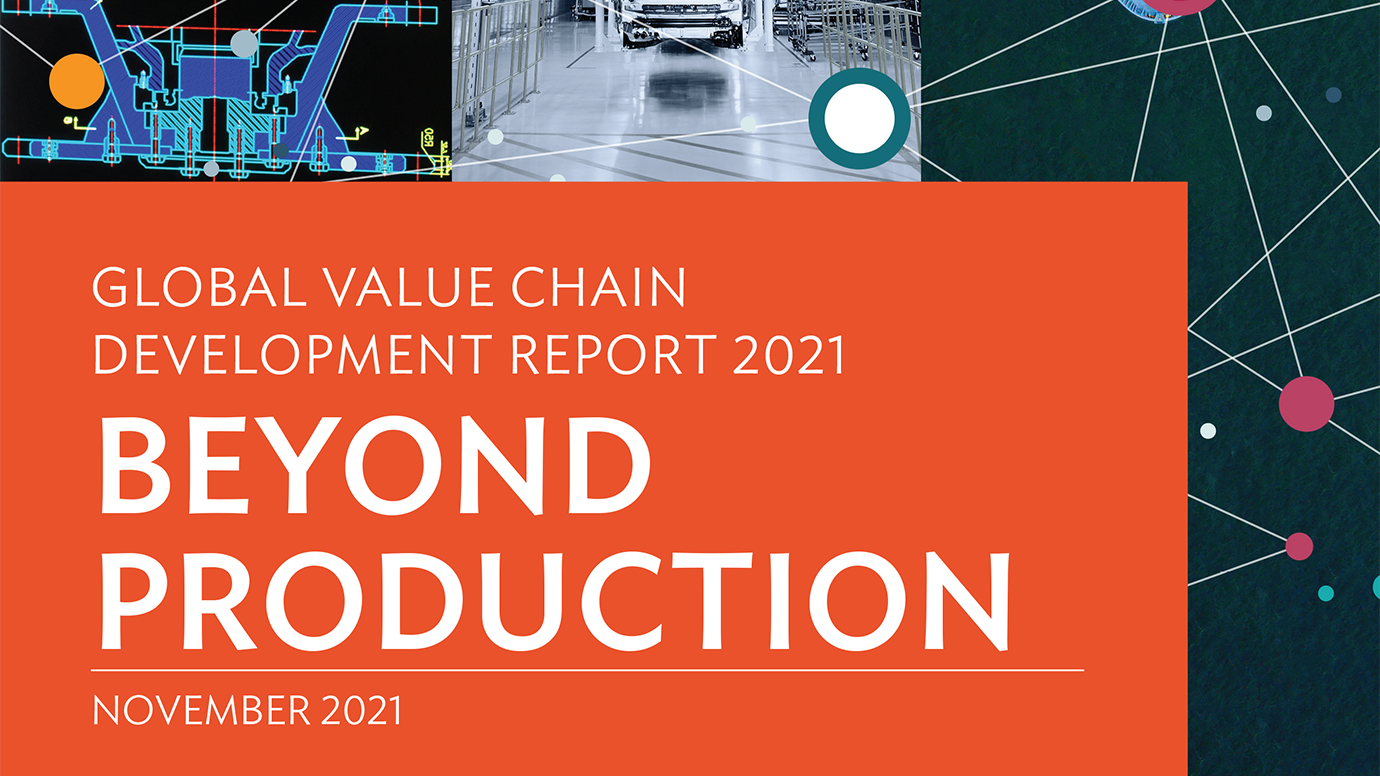
An in-depth look at the GVC Development Report 2021
May 2, 2022 – Zoom, All times in CET (UTC+2)
Programme
Welcome remarks 10:00 – 10:05
- Anabel González, Deputy Director-General, World Trade Organization
Panel on the GVC Development Report 2021 10:05 – 10:50
Moderator:
- Victor Stolzenburg, World Trade Organization
Panelists:
- Joseph Mariasingham, Asian Development Bank
- Yuqing Xing, National Graduate Institute for Policy Studies
- Elisabetta Gentile, Asian Development Bank
- Etel Solingen, University of California Irvine
- Kathryn Lundquist, World Trade Organization
Q&A 10:50 – 11:10
Closing remarks and outlook 11:10 – 11:15
- Robert Koopman, Chief Economist, World Trade Organization
Description: The Global Value Chain Development Report 2021, the third of a biennial series among different partners including the WTO and the ADB explores the long-term trends in GVCs and the factors shaping them. The report breaks new ground by providing analysis on GVCs beyond manufactured goods, detailing how value added in GVCs is increasingly generated through intangible products, such as services and intellectual property. The report highlights that GVCs have proven to be resilient in the face of the challenges posed by the COVID 19 pandemic as well as environmental and geopolitical shocks and sheds light on their importance for global economic recovery.
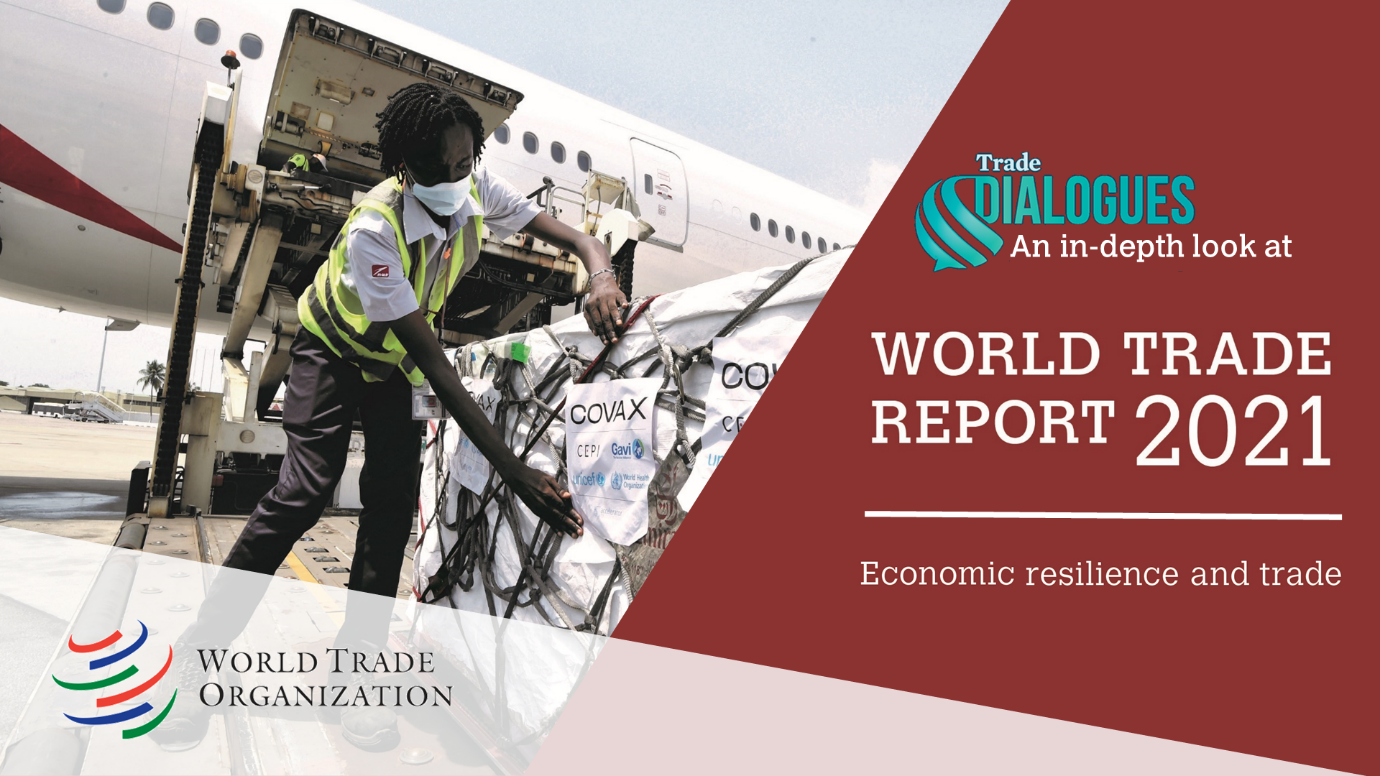
31 January 2022, 15:00 to 16:30, CET: Geneva, via Zoom + Livestreaming
This online event requires prior registration. Click here to register
The event will also be streamed online on Youtube
Discussant:
- Katheryn N. Russ, Professor of Economics, University of California, Davis
Speakers:
- José-Antonio Monteiro (WTO)
- Eddy Bekkers (WTO)
- Roberta Piermartini (WTO)
- Marc Bacchetta (WTO)
Topic: An in-depth look at the World Trade Report 2021: Economic Resilience and Trade.
The COVID-19 pandemic and the prospect of increasingly frequent and more intense natural and man-made disasters raise important questions about the resilience of the global economy to such shocks. The World Trade Report 2021 (WTR21) explores the role of trade, trade policy and international cooperation in building and supporting economic resilience.
Please join the authors of the WTR21 on Monday 31 January 2022 who will present the main insights they gained from reviewing the vast empirical and theoretical evidence on the role of international trade in economic resilience. A Q&A session will follow after the presentations.
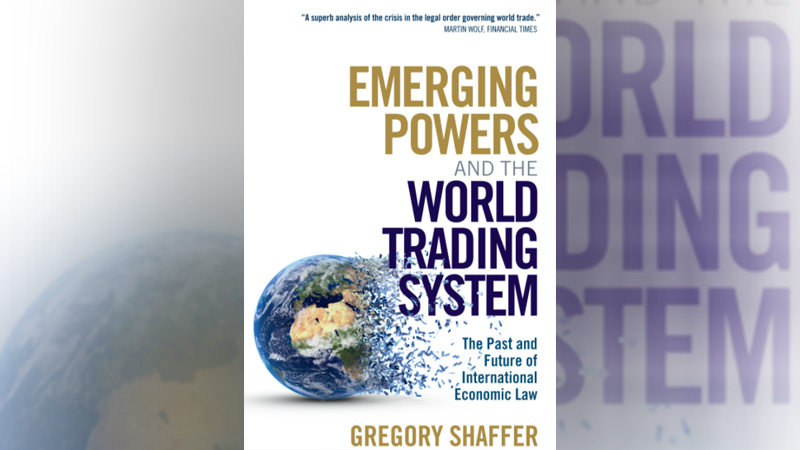
July 12, 5pm to 6.15pm (CET)
This online event requires prior registration. Click here to register
Moderator:
- Anabel González, WTO Deputy Director-General
Panelists:
- Gregory Shaffer, Chancellor's Professor University of California, Irvine School of Law
- Jennifer Hillman, Law professor, Georgetown University
- John Hancock, WTO Counsellor
- Amrita Narlikar, President of the German Institute for Global and Area Studies; Professor, Universität Hamburg; Honorary Fellow, Darwin College, University of Cambridge
Topic: The Past and Future of International Economic Law and WTO
Victorious after World War II and the Cold War, the United States and its allies largely wrote the rules for international trade and investment. Yet, by 2020, it was the United States that became the great disrupter – disenchanted with the rules’ constraints. Paradoxically, China, India, Brazil, and other emerging economies became stakeholders in and, at times, defenders of economic globalization and the rules regulating it. The book entitled “Emerging Powers and the World Trading System” written by Gregory Shaffer explains how this came to be and addresses the micropolitics of trade law – what has been developing under the surface of the business of trade through the practice of law, which has broad macro implications. This book provides a necessary complement to political and economic accounts for understanding why, at a time of hegemonic transition where economic security and geopolitics assume greater roles, the United States challenged, and emerging powers became defenders, of the legal order that the United States created.
“‘Professor Shaffer's work eloquently illuminates a complex but vital subject – the law's power to shape a more inclusive model of transnational trade. By examining how and by whom the rules have been written and rewritten, he details the ways in which emerging economies such as Brazil, China, and India can spur the creation of capabilities needed to help to reform and rebuild the multilateral trading system, so that the benefits of trade accrue to all.” Roberto Azevêdo, Director-General of the World Trade Organization (2013–20) and Ambassador of Brazil to the WTO (2008–13)
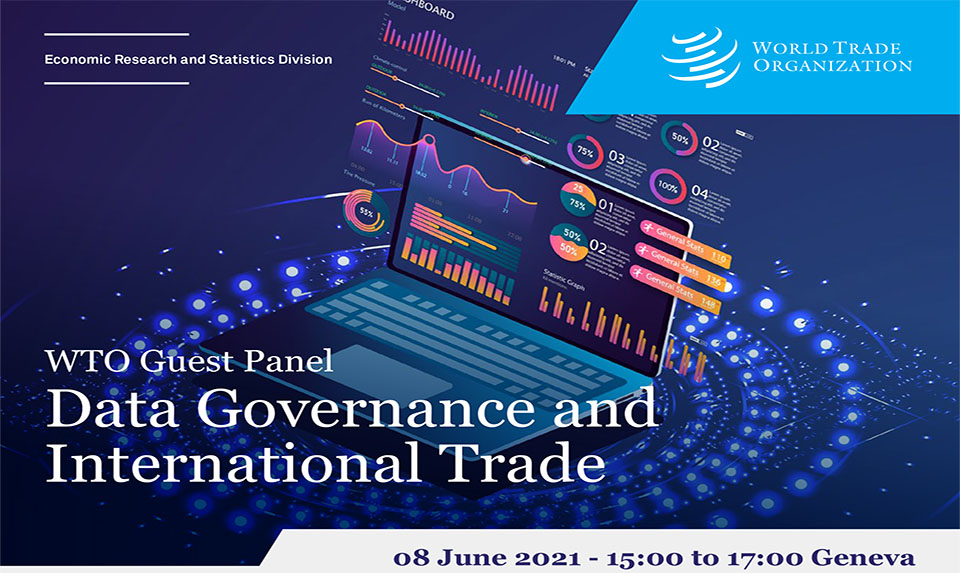
8 June 2021, 15:00 to 17:00, CET: Geneva
Moderator:
- Robert KOOPMAN, Chief Economist and Director Economic Research and Statistics Division, World Trade Organization
Panelists:
- Susan Ariel AARONSON, Research Professor and Director, Digital Trade and Data Governance Hub, George Washington University
- Henry GAO, Associate Professor of Law, Singapore Management University
- Vikram HAKSAR, Assistant Director, Monetary and Capital Markets Department, International Monetary Fund
- Javier LOPEZ-GONZALEZ, Senior Trade Policy Analyst, Organization for Economic Cooperation and Development
- Martin MOLINUEVO, Senior Counsel, World Bank
- Nicolás SCHUBERT, Senior Policy Adviser, Digital Economy, Undersecretariat for International Economic Affairs of Chile
- Joel TRACHTMAN, Professor of International Law, The Fletcher School of Tufts University
- Lee TUTHILL, Senior Counsellor, World Trade Organization
Topic: Data Governance and International Trade
National and transnational approaches to governing data and data driven sectors can build trust and facilitate growth and innovation. At the same time, these approaches may challenge trade principles. The panelists will examine the relationship between digital trade and the governance of various types of data, as well as how trade principles hinder or facilitate interoperability among data governance approaches. In particular, panelists will consider those issues:
- Does trade in data differ from trade in (other) goods or services governed by trade agreements?
- How might open trade principles make it harder (or easier) for nations to develop a trustworthy environment for the development of a data driven economy?
- How might domestic regulation or the absence of domestic regulations to govern data make it harder (or easier) for nations to develop a trustworthy environment for the development of a data driven economy?
- Can principles such as transparency, recognition, value of international standards or (legitimate) justifications facilitate greater rule-based crossborder data flows?

10 February 2021, 15:00 to 16:30, CET: Geneva, via Zoom + Livestreaming
Speakers
- Marc Auboin (WTO)
- Marc Bacchetta (WTO)
- Cosimo Beverelli (WTO)
- Ankai Xu (WTO)
Topic: An in-depth look at the World Trade Report 2020: Government policies to promote innovation in the digital age
In the decade since the global financial crisis, government intervention in the economy has come back into fashion. Over 100 countries have articulated “new industrial policies”, “Industry 4.0”, “digital transformation” plans. While policies have always offered a mix of support to mature industries and rising sectors, an overriding theme in this new wave of measures is the goal of encouraging technological upgrading, digitalized production and digital innovation (whether new in the world or new in the country). Countries at all levels of development have policies geared to support innovation and the digital transition.
The World Trade Report 2020 looks at how the specific characteristics of the digital economy leads to a re-thinking of government policies, notably in their design and the tools they use to spur innovation. It reviews the economic rationale for innovation policies as well as the determinants of innovation. It discusses the role of trade in supporting and diffusing innovation. It shows that there is a significant role for international cooperation, including in the WTO, to make the pursuit of digital development and technological innovation more effective, while limiting negative spill-overs from national policies. The WTO Agreements have provided a framework that has favoured the development of ICT-enabled economies across all levels of development. Further international cooperation at the WTO and elsewhere would enable continued innovation and reduce trade tensions to help international markets function more predictably.
This event is open to WTO Members and Observers, and by invitation to external participants. It will be also livestreamed here.
- Women and Trade: The role of trade in promoting gender equality, 15 October 2020
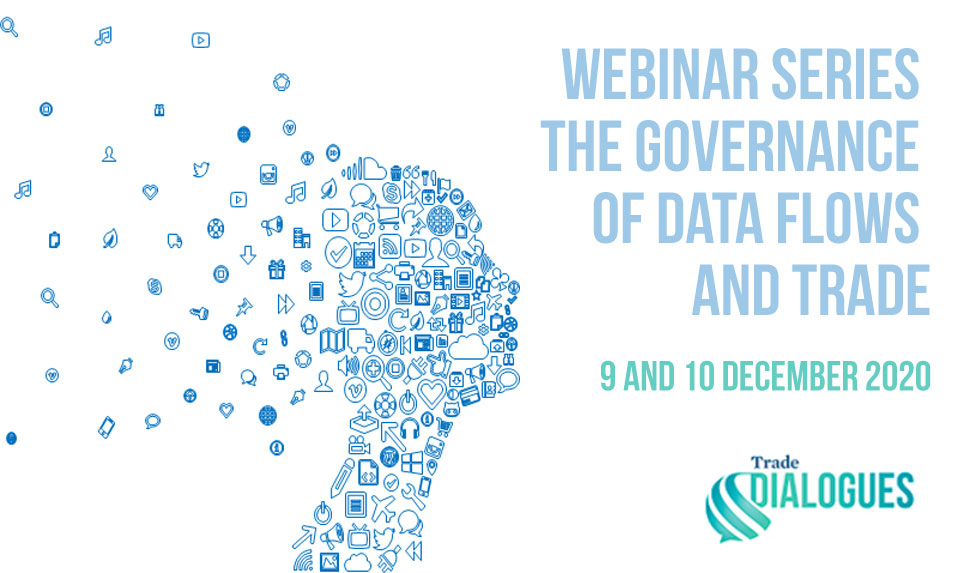
Emerging data policies aimed at fostering competition and innovation
December 9th, 2pm-3h30pm (CET)
Speakers
- Kris Gopalakrishnan, Chairman of Axilor Ventures; Chairman of the Committee on non-personal data regulation established by the Indian Ministry of Electronics and Information Technologies
Presentation - Eric Pol, Chairman and co-Founder, aNewGovernance
Presentation - Jack Hardinges, Programme Lead, Open Data Institute
Presentation - Christian Reimsbach-Kounatze, Information Economist, OECD
Presentation
The economic characteristics of data and data-driven markets
December 10th, 1.30pm-3h00pm (CET)
Speakers
- Jacques Cremer, Professor of Economics, University of Toulouse
Presentation - Diane Coyle, Bennet Professor of Public Policy at University of Cambridge
Presentation - Philip Marsden, Deputy Chairman, Bank of England; Professor of Law and Economics, College of Europe
- Anna Caroline Müller, Legal Affairs Officer, Intellectual Property, Government Procurement and Competition Division, World Trade Organization
Presentation - Alexey Ivanov, Direct, HSE-Skolkovo Institute for Law and Development, BRICS Competition Law and Policy Centre
A healthy competitive environment, including more widespread access to data, may foster market growth and innovation. Access to data and information are increasingly essential for businesses, including companies engaged in international trade, to compete and grow as our economies and societies move online. As data-driven business models proliferate more and more in developed and developing economies around the world, companies compete for access to data and information leading to a situation whereby a few large companies possess massive amounts of data. This asymmetry could inhibit competition and innovation. Largely unregulated for many decades, governments are now examining the impact of data and data-driven business models on market competition.
The first panel presents data-related policies or initiatives of governments introduced to enhance access to and sharing of data, and thereby fostering competition and innovation. The second panel discusses competition issues arising in markets where data-driven business models operate, and the economic characteristics of data, explaining how wider and more equitable availability of data can yield socio-economic benefits.
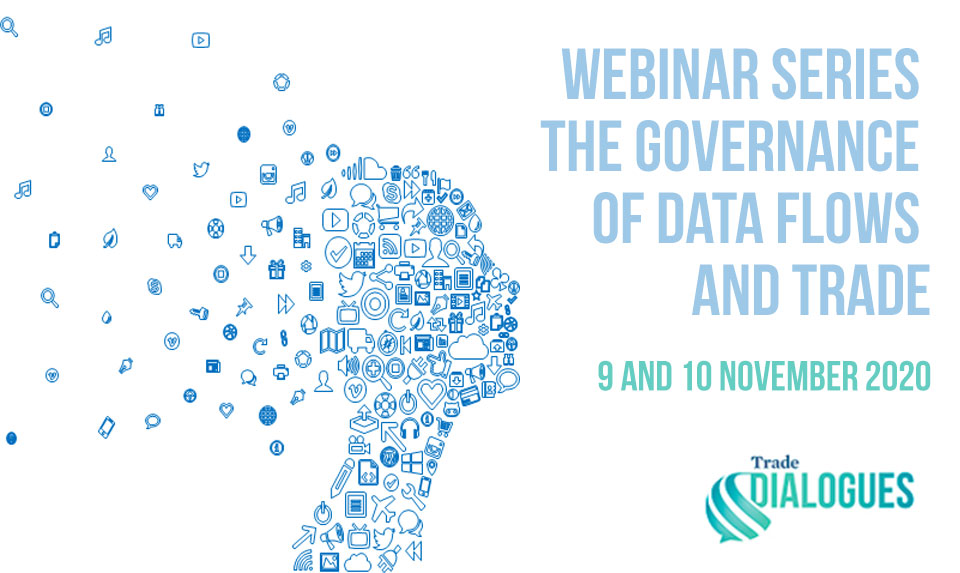
Economic opportunities and costs of privacy governance -
9 November 2020, 15:00 to 16:30 (CET)
Speakers
- Mr. Pablo Segura, Data Protection Officer, Mercado Libre
Presentation - Mr. Javier López-Gonzales, Senior Trade Policy Analyst, Organisation for Economic Co-operation and Development
Presentation - Ms. Patricia Poku, Executive Director, Data protection authority, Ghana
Presentation - Dr. Andrés Barreto González, Superintendency of Industry and Commerce, Colombia
- Dr. Eiichi Tomiura, Research Institute of Economy, Trade and Industry, Japan
Presentation
Topic: Privacy across borders: how do we ensure it in a globalized trading system?
Different models to facilitate the cross-border exchange of personal data - Registration
10 November 2020, 15:00 to 16:30 (CET)
Speakers
- Mr. Richard Syers, Principal Policy Adviser, Information Commissioner Office, on behalf of Global Privacy Assembly
Presentation - Ms. Sophie Kwasny, Head of the Data Protection Unit of the Council of Europe
Presentation - Mr. Justin Weiss, Chair of the Board of Directors of the International Association of Privacy Professionals
Presentation - Mr. Rafael García Gózalo, Jefe del Área Internacional de la Agencia Española de Protección de Datos
Presentation - National Institute for Transparency, Access to Information and Personal Data Luis Ricardo Sánchez Hernández, Instituto de Transparencia, Acceso a la Información Pública, Protección de Datos Personales y Rendición de Cuentas de la Ciudad (INAI), México
Presentation
Topic:Privacy across borders: how do we ensure it in a globalized trading system?
Personal data is an integral part of international trade, ranging from employee data to information about users of digital networks and services. Such data can reveal details about individuals or companies. Governments are crafting privacy rules to regulate the collection, use and exchange of personal information, including across borders, to guarantee the confidentiality, integrity, availability, when appropriate, of personal data. Currently, 132 governments have put in place privacy legislations. Well-designed rules can contribute to international trade by enhancing trust and facilitating the movement of data across borders. Governments have introduced a wide range of mechanisms to facilitate the cross-border exchange of personal data, such as a certification system (e.g. APEC Cross-border Privacy Rules), standards contractual clauses, corporate binding rules, or an adequacy assessment, among others.
The first panel explores the economic and trade opportunities and costs of privacy governance. The second panel focuses on different approaches to facilitate the cross-border exchange of personal data, thus aiming to achieve a balance between the need to safeguard privacy and the growing opportunities for digital trade.
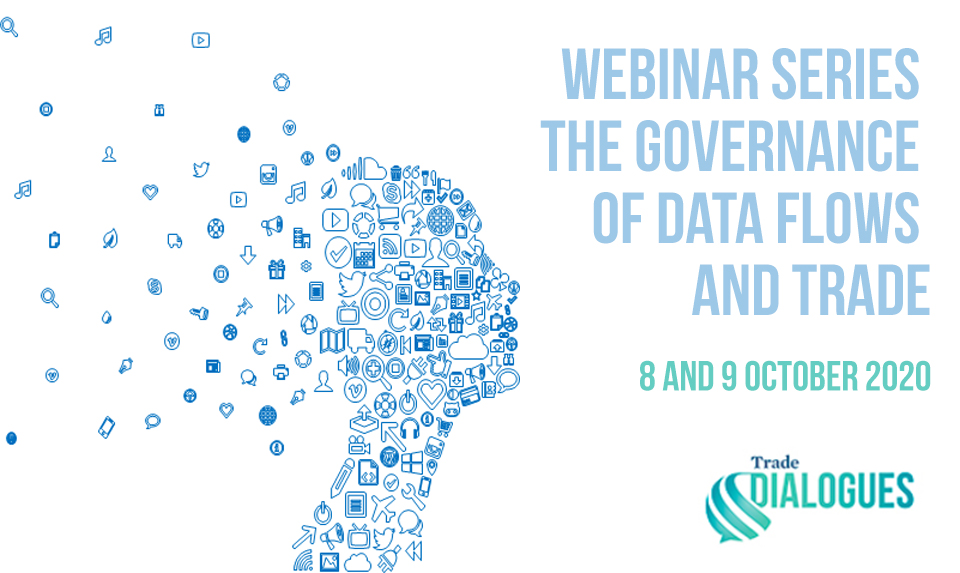
Trade implications of cyber-security risks and confidence-building
8 October 2020, 15:00 to 16:30 (CET)
Speakers
- Mr. Patricio Quezada Andaur, Asesor en Comunicaciones y Asuntos Internacionales, Computer Security Incident Response Team, Chile
Presentation - Ms. Heidi Lund, Senior Adviser, National Board of Trade, Sweden
Presentation - Mr. Zane Cleophas, Group CEO Areta Holdings (Expert, Stellenbosch University Security Institute for Governance and Leadership in Africa (SIGLA)), South Africa
- Mr. Andrew Rud, Head of Operations, CommerceGate, Spain
Presentation - Ms. Grace Acayo, Cybersecurity Research Analyst, International Telecommunication Union
Ms. Caroline Sarah Troein, Lead Cybersecurity Researcher, International Telecommunications UnionsPresentation
Topic:Trade implications of cyber-security risks and national policies (theme 1) & ICT product regulation, standards development & international regulatory cooperation (theme 2)
9 October 2020, 15:00 to 16:30 (CET)
Speakers
- Ms. Marília Maciel, Digital Policy Senior Researcher DiploFoundation
Presentation - Mr. Michael Nelson, Director, Technology and International Affairs & Senior Fellow at Carnegie Endowment for International Peace
- Mr. Nigel Cory, Associate Director, Information Technology and Innovation Foundation
- Mr. Dale Waterman, Partner, White Label Consultancy
Presentation - Ms. Anne Flanagan, Data Policy & Governance, World Economic Forum
- Ms. Wookyung JUNG, Policy Analyst, Cybercrime Directorate, Interpol
Presentation - Mr. Christopher Church, Senior Mobile Forensics Specialist, Digital Forensic Lab, INTERPOL Innovation Centre
Topic: Multilateral and regional approaches to cyber-security (theme 1) & Cross-border cooperation for law enforcement and regulatory oversight purposes (theme 2)
Cyber-security has become increasingly important for international trade. The number of people and companies online and communicating through Internet increases all the time. More than half of the world’s population is currently online. Also, a wide range of economic sectors, including critical industries, such as food or energy, has now rely on ICT goods and services. That said, the number of cyber incidents, crimes, attacks and breaches is also increasing. These activities undermine the online trust that is needed to support the growth of trade in the digital economy. The confidentiality, integrity, availability and traceability of data depends on cybersecurity measures taken by companies and governments.
In view of exploring the trade implications of cybersecurity risks and policies, both national and international, the webinar discussions will progress according to 4 themes laid out in two days. The first webinar (October 8th) explores the trade implications of cybersecurity risks and national policies. It also looks at ICT product regulation and standards development and discusses international regulatory cooperation to foster interoperability. The second webinar (October 9th) discusses the trade implications of bilateral and multilateral cyber-security cooperation schemes. It also looks at cross-border cooperation schemes for law enforcement or regulatory oversight purposes with a view to mitigating the impacts of cyber incidents, such as crimes, attacks or breaches, which are commonly borderless.
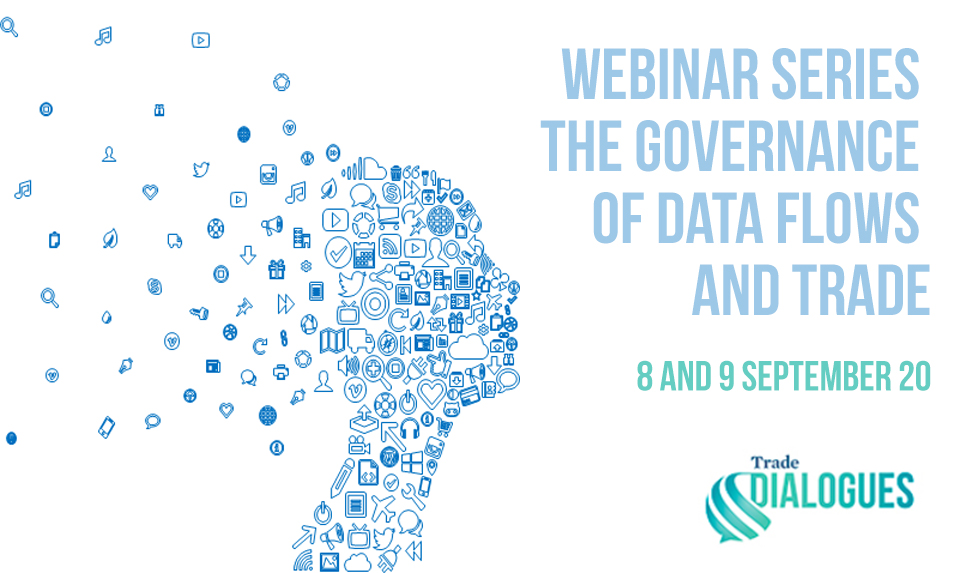
8 September 2020, 15:00 to 16:30 (CET)
Speakers
- Mr. Nicolas Schubert, Head, Department of Digital Economy, Under secretariat for International Economic Affairs, Chile
Presentation - Dr. Konstantinos Komaitis, Senior Director, Policy Development and Strategy, Internet Society
Presentation - Mr. Matthew Alison, Senior Public Policy Manager, Data, Platforms and AI, Vodaphone Group
Presentation - Dr. Alison Gillwald, Executive Director at Research ICT Africa & Adjunct Professor at the University of Cape Town
Presentation
Topic: The mechanics of data flows
9 September 2020, 15:00 to 16:30 (CET)
Speakers
- Ms. Ruosi Zhang, Counsellor, World Trade Organization
Presentation - Ms. Wendy Li, Bureau of Economic Analysis at the US Department of Commerce
Presentation - Mr. Magnus Rentzhog, Former Senior Advisor at the Swedish National Board of Trade
Presentation - Mr. Cedric Ly, Manager, Artefact
Presentation - Mr. Paul Barclay, Chief Commercial Officer, CommerceGate
- Mr. Joseph Whitlock, Director, Policy, Business Software Alliance
Presentation - Mr. Pablo Segura, Data Protection Officer, Mercado Libre
- Ms. Esther Peh, Lead, External & Regulatory Affairs (Asia-Pacific)
Topic: How dows international trade rely on cross border data flows?
International trade increasingly relies on cross-border data flows. Cross-border data flows enable companies to sell goods and services online, to supply digitized products, to manage supply chains, and to access information on foreign markets and regulations applicable to their products. Digital transformation has also made companies more reliant on the collection and use of information that data-driven technologies make available. Easier access to more and more diverse information enables businesses to improve marketing plans and develop products, sustain or create business models, manage back-office functions, coordinate supply chains, and better anticipate and respond to cyber incidents.
Data flows can best foster trade if complementary policies are put in place that enhance connectivity while safeguarding network integrity and security, that promote trust in the way information is collected and used, and that encourage a level playing field. The WTO Economic Research and Statistics Division (ERSD) proposes a series of webinars to explore interactions between data flows, data governance and trade and the role of international cooperation in achieving a balance between trade and other policy objectives, including privacy, cyber-security, competition and innovation as well as addressing the digital divide.
These first two webinars of the series aim at providing an overview of the different ways in which international trade relies on cross-border data flows. The first webinar addresses the mechanics of data flows, that is, the infrastructure and services that transmit bits and bytes around the world. The second webinar invites large and small businesses and trade associations to describe how they rely on global data and information flows to conduct business.
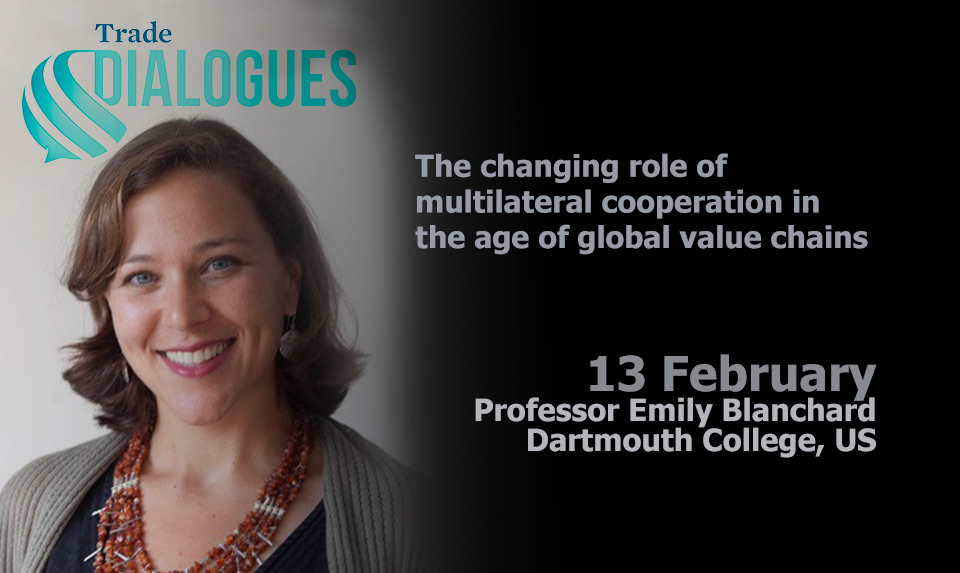
13 February 2020, 13:00 to 14:15 - Room E, WTO Headquarters
Speakers
- Professor Emily Blanchard, Dartmouth College
Presentation
Video
Topic: The changing role of multilateral cooperation in the age of global value chains
Recent decades have seen a fundamental shift in the nature and distributional impacts of trade. Rapid increases in cross-border investment and the advent of global value chains (GVCs) have transformed international commerce and its rules. At the same time, technological advances and foreign competition are reshaping national labor markets, benefiting economies overall but leaving some workers behind. Both forces are challenging the established role and rules of 20th-century multilateral institutions, including the WTO. This lecture will review recent evidence on the economic and political consequences of GVCs and labor market disruptions, and highlight key implications for the global trading system.
Emily Blanchard is Visiting Fellow for the Kühne Center for Sustainable Globalization at the University of Zürich, a Research Fellow with the Center for Economic Policy Research, and Associate Professor at the Tuck School of Business at Dartmouth College. Her research explores the causes and consequences of international trade and investment, with a focus on global value chains, human capital, and inequality. Her research is published in leading economics journals, including the Review of Economic Studies, and the Journal of International Economics, and has been covered by publications such as the Financial Times or the New York Times. She frequently engages with the policy community, and has interacted with the WTO, World Bank, and the IMF, as well as several governments and central banks among others.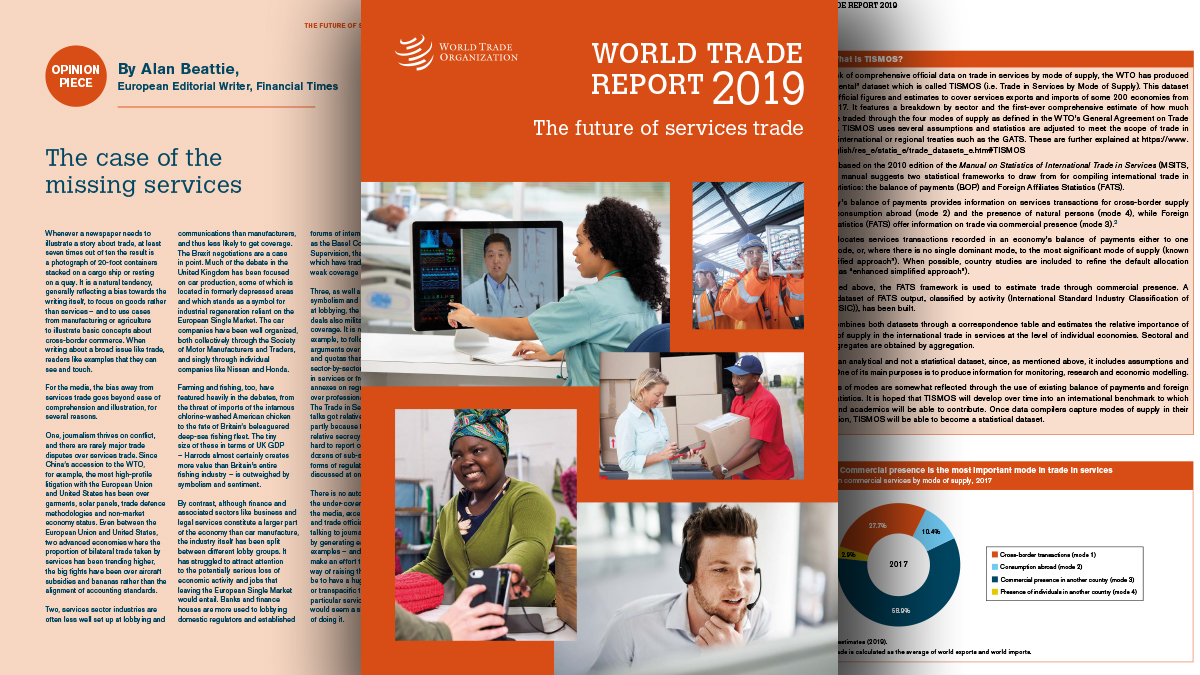
18 November 2019, 14:30 to 16:00: Room E, WTO Headquarters
Speakers
- Stela Rubínová (WTO)
- Barbara d'Andrea (WTO)
- Victor Stolzenburg (WTO)
- Roberta Piermartini (WTO)
- Antonia Carzaniga (WTO)
- Sébastien Miroudot (OECD)
Presentation
Topic: An in-depth look at the World Trade Report 2019
Presentation
Video
Services have become the most dynamic component of global trade, with an increasingly important role in the global economy and in everyday life. Yet the extent of services’ contribution to global trade is not always fully understood. The World Trade Report 2019 attempts to remedy this, making use of a new dataset developed by the WTO that captures the various ways in which services are supplied across borders. The Report examines how trade in services has evolved in recent years and looks at why services trade matters. Major trends affecting trade in services, including demographic changes, digital technologies, rising incomes and climate change, are reviewed. The Report also estimates how services trade may evolve over the next 20 years and the prospects for enhancing international cooperation on services trade policy.
In this lecture, authors of the Report will present the key findings of the Report and Sébastien Miroudot from the OECD will share his comments and views on the topic.
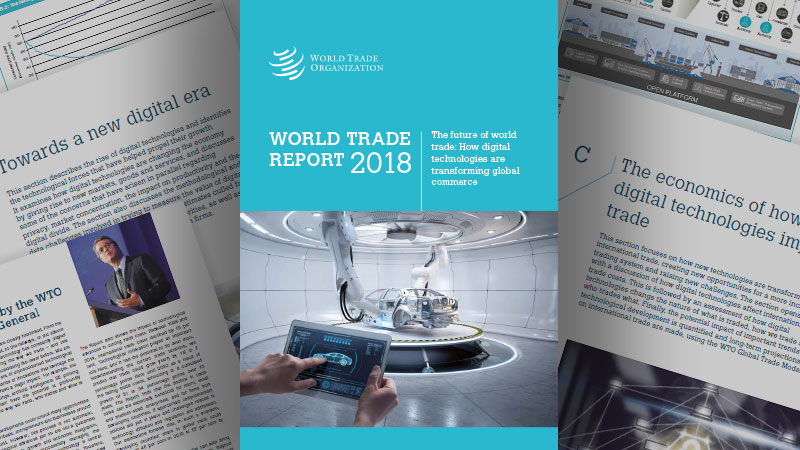
20 November 2018, 14:30 to 16:00: Room D, WTO Headquarters
Speakers
- Marc Bacchetta, WTO
Presentation - Emmanuelle Ganne, WTO
Presentation - Roberta Piermartini, WTO
Presentation - Robert Teh, WTO
Presentation
Topic: An in-depth look at the World Trade Report 2018
Trade has always been shaped by technology but the rapid development of digital technologies in recent times has the potential to transform international trade profoundly in the years to come. Computing, automation and data analytics are coming together in entirely new ways that deeply impact what we trade, how we trade and who is trading. What will be the consequences of the "new digital revolution" on the world economy, and in particular on international trade?
The World Trade Report 2018 examines how digital technologies – and in particular the Internet of Things, artificial intelligence, 3D printing and Blockchain – affect trade costs, the nature of what is traded and the composition of trade. It provides an analysis of the changes at play and estimates the extent to which global trade may be affected over the next 15 years.
In this lecture, authors of the report will present the key findings of the Report.
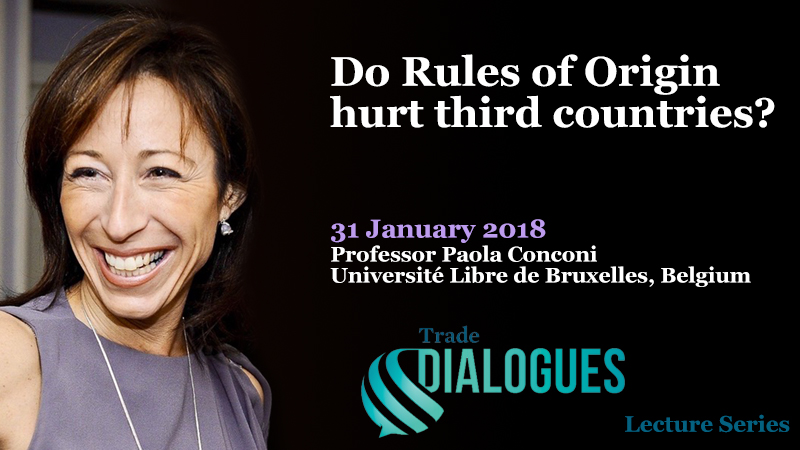
31 January 2018, 14:00 to 15:15: Room E, WTO Headquarters
Speaker
- Professor Paola Conconi, Université Libre de Bruxelles, Belgium
Presentation
Topic: Do Rules of Origin hurt third countries?
Rules of Origin are a common ingredient of Regional Trade Agreements but their effects on trade patterns are poorly understood. Professor Conconi will present unique and novel findings on this relationship. In particular, she will show how Rules of Origin affect imports of intermediate goods from third countries and discuss the potential implications of her findings with respect to the WTO agreements.
Paola Conconi is Professor of Economics at the Université Libre de Bruxelles and Visiting Professor at the London School of Economics and Political Science. She is also Director of the CEPR Research Network on Global Value Chains, Trade and Development. Her main research interests are in international trade, firm organization, and political economy. She holds a PhD in Economics from the University of Warwick and has published in several leading journals including the American Economic Review, the Review of Economic Studies, the Journal of Political Economy, and the Journal of International Economics.
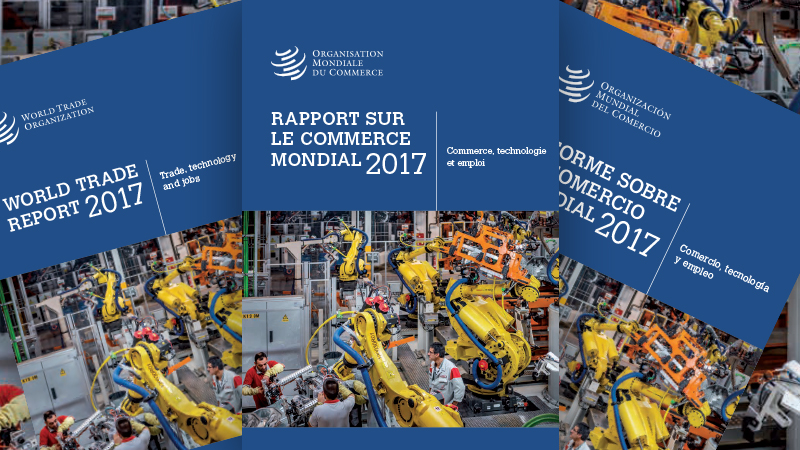
9 November 2017, 14:00 to 15:15: Room S3, WTO Headquarters
Speakers
- Marc Bacchetta, WTO
- Cosimo Beverelli, WTO
- Roberta Piermartini, WTO
- Robert Teh, WTO
Topic: An in-depth look at the World Trade Report 2017
The role of trade and technology in shaping labour market outcomes has been under intense scrutiny over the last years. It has also been the topic of many of our recent Trade Dialogues Lectures, and the theme of the recently launched World Trade Report entitled "Trade, technology and jobs". In this lecture, authors of the report will present the insights they have gained from surveying and interpreting the vast empirical and theoretical evidence on the issue.
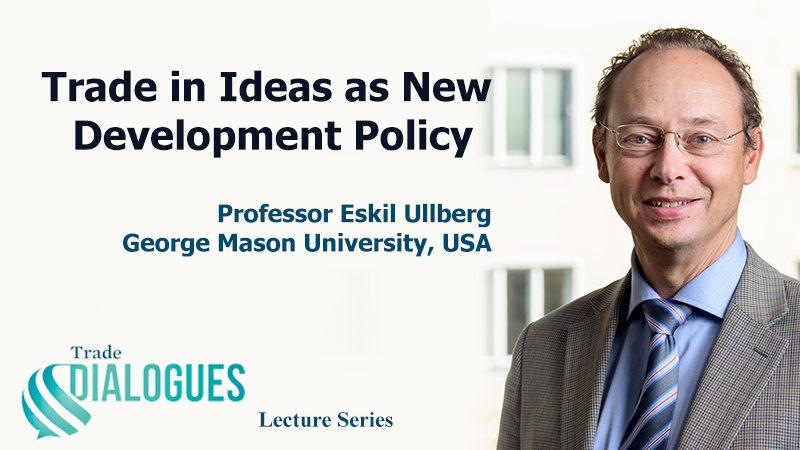
29 June 2017, 14:00 to 15:15: Room S3, WTO Headquarters
Speaker
- Professor Eskil Ullberg, George Mason University, USA
Intro - Presentation
Topic: Trade in Ideas as New Development Policy
Technology spill-overs from high-income countries can significantly accelerate the economic development of low-income countries. Similarly, the rapid educational advancements of low-income countries can enlarge the global stock of ideas. Professor Ullberg discusses the role of organized markets in facilitating this global trade in ideas as well as the implications for policy making in the area of intellectual property, education, and taxation.
Eskil Ullberg is Adjunct Professor at George Mason University and, for twenty years, a senior consultant for government agencies, international organizations and firms. His research focuses on the market in patents and the effect on long-term economic growth. His particular interest is in examining which institutional and taxation policies encourage the flow of ideas between developed and developing economies.
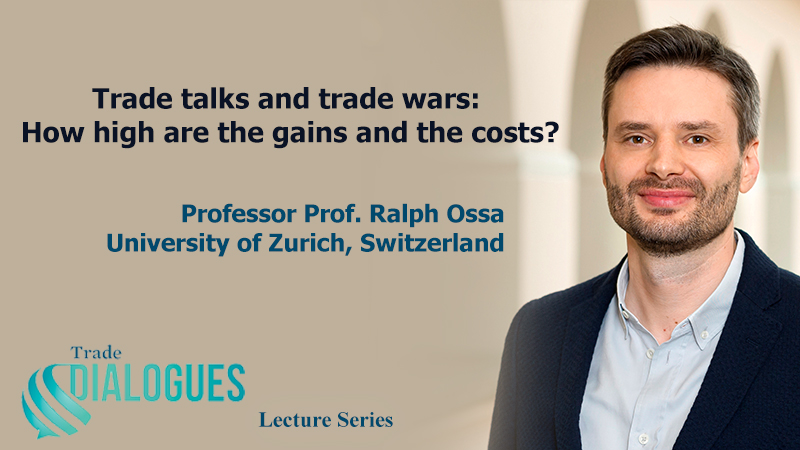
6 June 2017, 14:00 to 15:30: Room S3, WTO Headquarters
Speaker
- Professor Ralph Ossa (University of Zurich), Switzerland
Presentation
Topic: Trade talks and trade wars: How high are the gains and the costs?
What tariffs would prevail in a world-wide trade war and how costly would a breakdown of international trade policy cooperation be? What is the scope for future multilateral trade negotiations and how large are the gains from rules-based trade? Professor Ossa will present answers to these questions and highlight the benefits of multilateral trade cooperation.
Ralph Ossa is Professor of Economics of Globalization and Emerging Markets at the University of Zurich. He has conducted research in both these areas with a particular emphasis on questions of policy relevance. Prior to moving to Zurich, he served on the faculty of the University of Chicago Booth School of Business. He holds a PhD in Economics from the London School of Economics and has published in several leading journals including the American Economic Review, the Journal of Political Economy, and the Journal of International Economics.
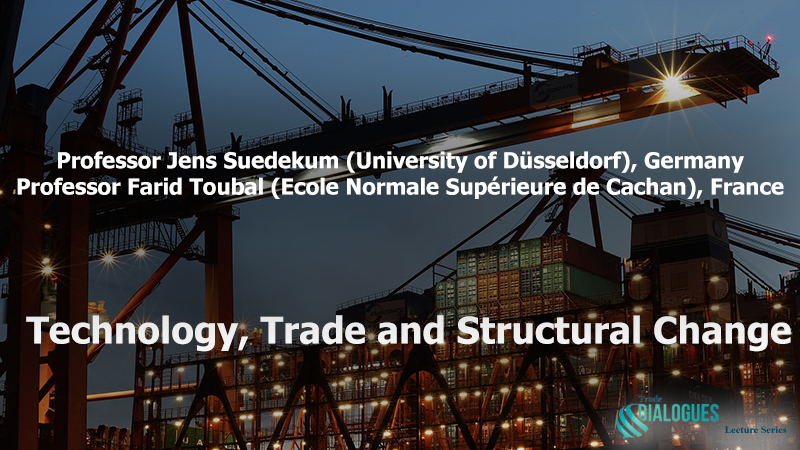
9 May 2017, 14:30 to 16:00: Room S3, WTO Headquarters
Speakers
- Professor Jens Suedekum (University of Düsseldorf), Germany
Presentation - Professor Farid Toubal (Ecole Normale Supérieure de Cachan), France
Presentation
Topic: Technology, Trade and Structural Change
In many advanced and developing economies, manufacturing jobs are disappearing while services jobs are on the rise. This structural change has been underway for decades, but recent political debate in some countries has reignited a vivid interest in its drivers and its consequences for the labour market. Professors Suedekum and Toubal will discuss the role of technology and international trade, and thus provide more insights into the type of jobs that technology and globalization create in advanced economies. Jens Suedekum is Professor of International Economics at the Düsseldorf Institute for Competition Economics (DICE) at Heinrich-Heine-University Düsseldorf. He is also a research fellow of CEPR, the Institute for Employment Research (IAB) and the CESifo network. His main research areas are urban and regional economics and international trade. Farid Toubal is Professor of Economics at the ENS of Cachan and associate researcher at Center for Research in Economics and Statistics (CREST). He is also a member of the French Council of Economic Analysis, research fellow of the CESifo network and scientific advisor at the Centre d’Études Prospectives et d’Informations Internationales (CEPII). His research mainly focuses on multinational activities, international trade and migration.
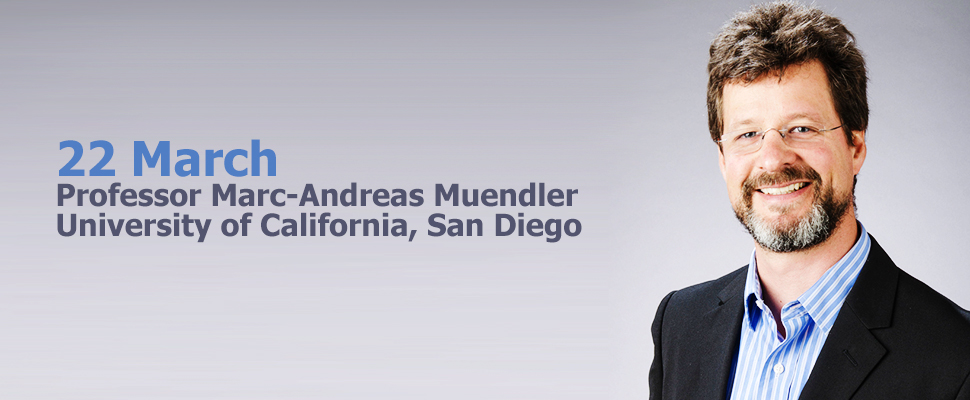
22 March 2017, 15:15 to 16:30: Room S3, WTO Headquarters
Speaker
- Professor Marc-Andreas Muendler (University of California, San Diego)
Presentation
Topic: Globalization and the task content of jobs
Professor Muendler will discuss the impact of trade integration and multinational production on the changing task assignment to occupations and the skill requirements of jobs, highlighting consequences for wage inequality and employment. His work has wide policy implications, for instance in the areas of education and re-training, and has been published in leading journals such as the American Economic Review or the Review of Economic Studies. He is Associate Professor at the University of California, San Diego and has worked as a Consultant to the World Bank and private businesses, and as a Consulting Researcher for the Brazilian labor Ministry, the Brazilian census bureau, the German central bank and the Federal Reserve Bank of New York. Professor Muendler was Peter B. Kenen Research Fellow at Princeton University. He received his Ph.D. in Economics from the University of California, Berkeley.
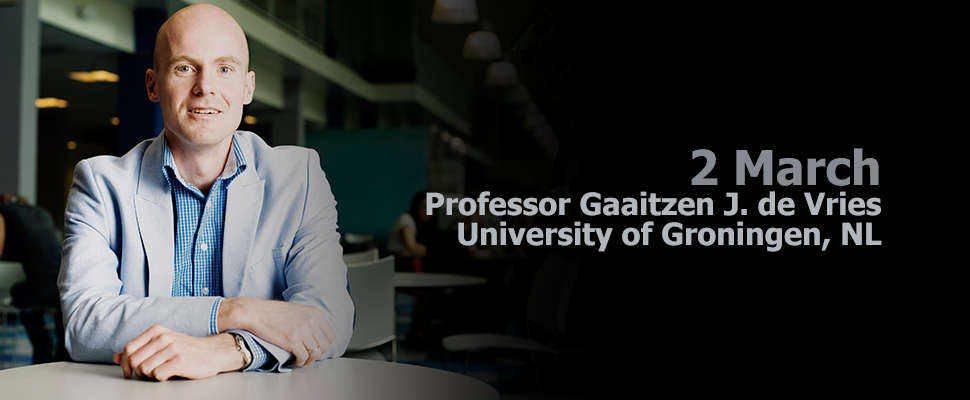
2 March 2017, 16:00 to 17:15: Room S2, WTO Headquarters
Speaker
- Professor Gaaitzen J. de Vries (University of Groningen, NL)
Presentation
Topic: Offshoring, technology and job polarization
Professor de Vries will discuss the impact of offshoring and technological change on job polarization in advanced and emerging economies and, in particular, assess the relative importance of the two phenomena. He is most notably known for his influential contribution to Global Value Chains research and the World Input Output Database project. Professor de Vries lectures at the University of Groningen where he also obtained his PhD in 2009. He has been a consultant and advisor for various organisations including the United Nations, the Asian Development Bank, and the OECD. His work has been published in several influential journals such as the Journal of Economic Perspectives and Economic Policy.
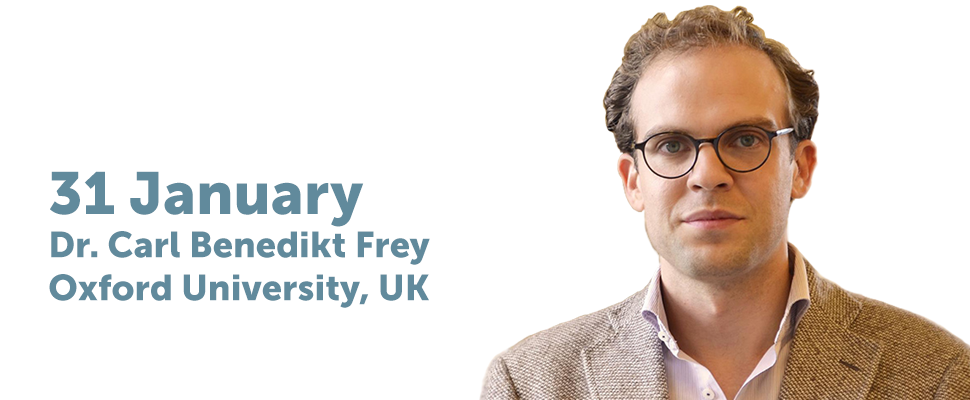
31 January 2017, 14:00 to 15:15: Room S3, WTO Headquarters
Speaker
- Dr. Carl Benedikt Frey (Oxford University, UK)
Presentation
Topic: Technology and the future of work
Dr. Frey will discuss the role of automation for the future of work in the context of globalisation. He is most notably known for the influential assessment that nearly half of the jobs in the United States are susceptible to automation in the next decades. He is Oxford Martin Citi Fellow at Oxford University where he directs the programme on Technology and Employment at the Oxford Martin School – regarded as the world's leading programme on the future of work. He is one of the most widely cited scholars in the field of workforce automation and industrial renewal and his work has been covered by The Economist, Financial Times, New York Times, and many others.
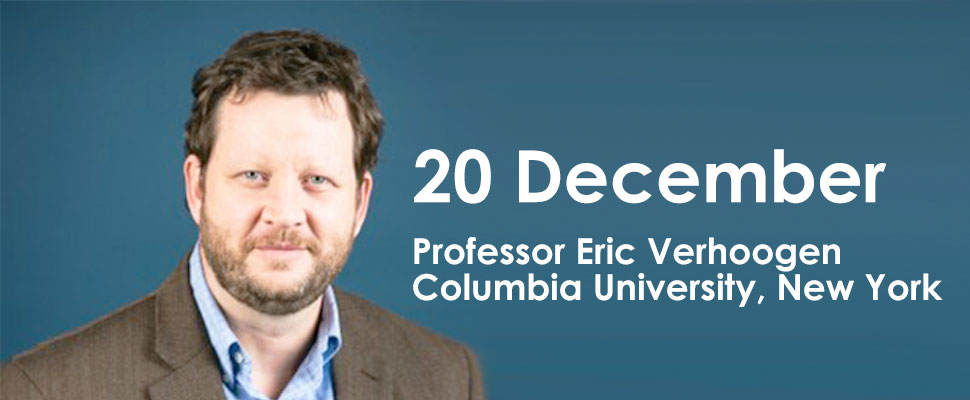
20 December 2016, 10:00 to 11:00: Room S2, WTO Headquarters
Speaker
- Professor Eric Verhoogen (Columbia University, New York)
Presentation
Topic: Trade, the wage premium and inequality
Professor Verhoogen will make a non-technical presentation on the topic of trade, the wage premium and inequality. He has published several seminal studies in leading journals on the effect that trade has on wage inequality in the context of developing economies. He is also the Vice Dean of the School of International and Public Affairs and the Co-Director of the Center for Development Economics and Policy at Columbia University in New York City.
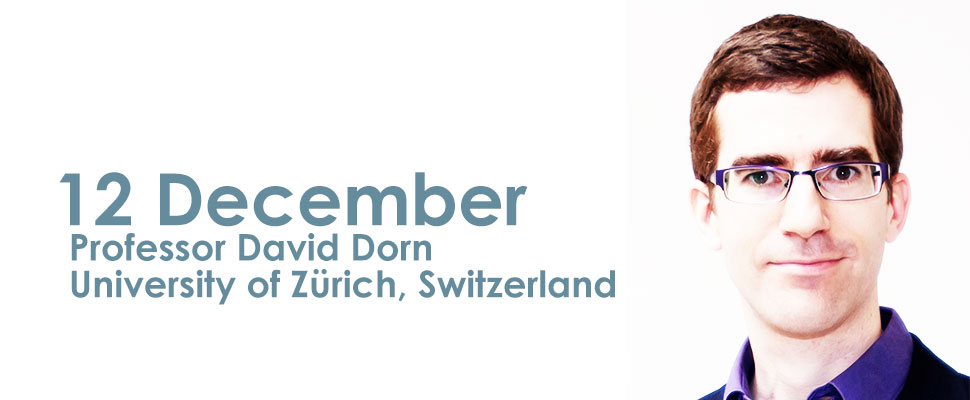
12 December 2016, 14.30 to 15.30: Room D, WTO Headquarters
Speaker
- Professor David Dorn (University of Zürich, Switzerland)
Presentation
Topic: The role of trade and technology for labour market adjustment
Professor Dorn will give a non-technical lecture on the role of trade and technology for labour market adjustment and will put the findings of the field into context. He is the co-author of the influential study The China Shock: Learning from Labor Market Adjustment to Large Changes in Trade and a series of other papers that assess the impact of import competition from China on labour markets in the United States. His findings have been a key influence on the political debate surrounding trade in the United States and Europe.
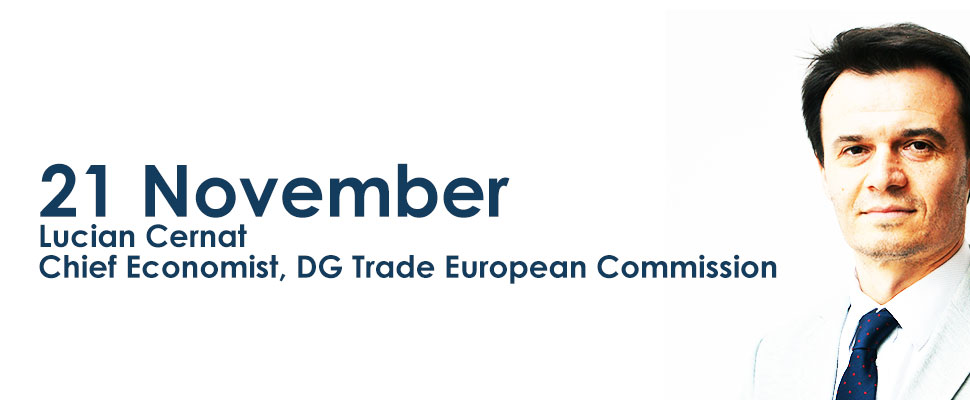
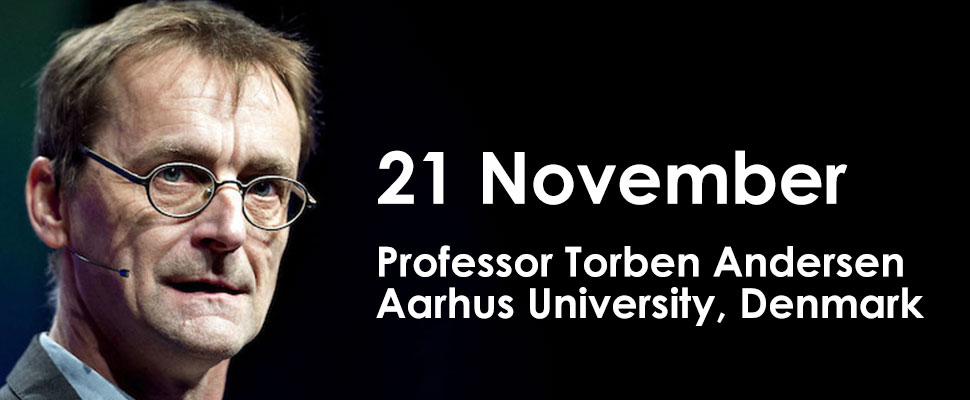
21 November 2016, 10:00 to 12.00: Room S1, WTO Headquarters
Speakers
- Lucian Cernat (Chief Economist, DG Trade European Commission)
Presentation
- Professor Torben Andersen (Aarhus University, Denmark)
Presentation
Topic : Findings on the effectiveness of trade-specific and general labour market adjustment policies
Lucien Cernat will evaluate the European Globalization Fund, a mechanism to finance trade adjustment programmes in EU member countries. With almost 20 years of experience in the trade policy field, he is in charge of economic advice on EU trade policy, influencing over 4.5 trillion euros of EU trade flows annually. He is a frequent speaker at high-level events alongside award-winning economists and his publications are quoted in leading international journals.
Professor Andersen will discuss Flexicurity, the Danish integrated strategy for enhancing flexibility and security in the labour market. He is a respected authority on the programme and has widely published on the success of the Nordic model. For numerous years, he has also been advising governments on improving their labour market adjustment policies.